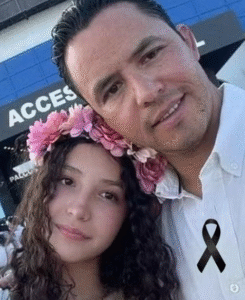What the Research Shows — And What Didn’t Turn Up
-
No Reliable News Source
-
A search through major news outlets, medical reports, and public databases turned up no credible or recent stories about a 14-year-old’s death specifically from “putting silicone on” her body.
-
There’s a story about a 14-year-old girl who died after getting breast implants and a Brazilian Butt Lift (BBL). According to reports, her father said she underwent “secret plastic surgeries, including breast implants, liposuction, and a Brazilian butt lift.” Indiatimes
-
But that case does not mention “putting silicone on her skin” in the way the prompt suggests. Instead, it’s about surgical implants, which is a different (and extremely risky) medical procedure.
-
-
Warnings From Health Authorities
-
The U.S. Food and Drug Administration (FDA) has issued strong warnings about the use of injectable silicone (and similar products) for cosmetic body contouring when done by unlicensed providers. ISAPS
-
According to the FDA, using non-medical-grade silicone from unlicensed people can lead to serious complications, including permanent injury, infections, embolism (blockage in blood vessels), or even death. ISAPS
-
The FDA explicitly states that injectable silicone for body enhancement is not FDA-approved. ISAPS
-
-
Past Fatalities From Illegal Silicone Injections
-
There are documented cases of people dying after receiving illegal silicone injections from unlicensed practitioners. For example, in North Carolina, a woman was charged after a teen died following such an injection. WSOC TV
-
These tragic incidents often involve “silicone oil” injected into areas like the buttocks, not simply “silicone on the skin.” The silicone can migrate into the bloodstream, leading to catastrophic medical outcomes.
-
Why the Original Headline Is Problematic
-
The phrase “putting silicone on us” is ambiguous. It could mean applying a topical product (which is still dangerous depending on what it is), or it could refer to injections, which are far more likely to cause fatal complications.
-
Because of the lack of solid reporting, the original claim appears to be a misleading or misinformed version of something else — likely conflating teenage cosmetic surgery or injection deaths with other well-known illegal silicone injection cases.
-
Sharing or believing such a headline without verification can spread fear, stigma, and misinformation.
Real Risks of Illegal or Unapproved Silicone Use
-
Silicone embolism: If silicone is injected improperly, it can enter the bloodstream and block blood vessels, sometimes reaching the lungs or brain.
-
Infection: Non-sterile procedures can lead to bacterial infections, abscesses, and sepsis.
-
Disfigurement: Using industrial or impure silicone can permanently distort tissue.
-
Migration: Silicone injected in one part of the body can move, causing pain or dysfunction elsewhere.
-
Lack of regulation: Many people performing these procedures are unlicensed, meaning there’s no legal or professional standard to ensure they are done safely.
The Bigger Picture: Why This Matters
-
Teen Vulnerability: If a teenager (like a 14-year-old) is pursuing dangerous cosmetic procedures, it reflects a broader issue of beauty standards, peer pressure, and risky self-image behavior.
-
Regulation Gaps: Stories like the ones about illegal silicone injections underscore how essential it is for authorities to regulate aesthetic treatments, crack down on unlicensed practitioners, and educate the public.
-
Awareness and Education: Parents, schools, and healthcare providers need to talk honestly about the risks of “quick fixes” to appearance — especially when minors are involved.
Bottom Line
-
There’s no confirmed report of a 14-year-old dying specifically from “putting silicone on” her body in the way your prompt describes.
-
What is well-documented is the extreme danger of unlicensed silicone injections, which have resulted in deaths.
-
Regulatory bodies like the FDA strongly advise against getting injectable silicone from non-medical professionals. ISAPS
-
If you see similar news or are concerned about someone considering such procedures, it’s important to seek trusted, fact-based medical advice.



